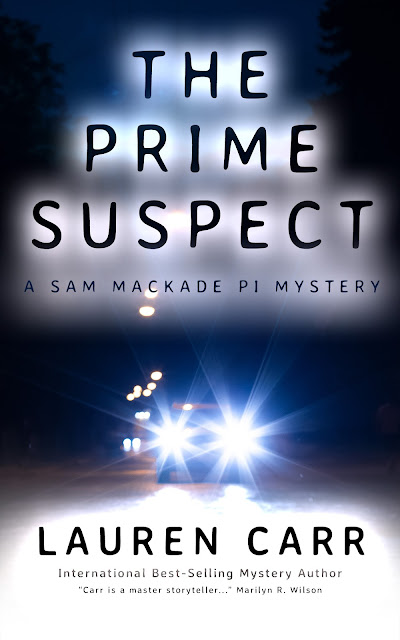Allow me to introduce Christine Trent, author of the historical novel The Queen's Dollmaker, a novel which I have read and thoroughly enjoyed! You can read my review of The Queen's Dollmaker here.
1) Tell us about yourself and what you do.
Thanks, Laura, for having me. I’m delighted to be here with your readers. When I’m not writing, I’m probably scrapbooking, cuddling my cats, or watching news. Over the last couple of years, I’ve turned into a total news junkie. I used to go through a novel a week, but now most of my reading time is spent on research. I do miss curling up with a good book on a regular basis.
2) How long have you been writing?
I started THE QUEEN’S DOLLMAKER in 2003, while working as a management consultant for a defense contractor. It was my first manuscript, and it really just had hobby status for me until I actually realized I was going to finish it in 2006. After its completion, I immediately started working on my next manuscript. I sold DOLLMAKER in 2008, and finally turned to writing full time in mid-2009.
3) Where do you get your inspiration to write?
My husband and I love to travel to England, and it is through walking through those wonderful old castles and stately homes that I derive my biggest injections of creativity.
4) Where do you like to write? What type of writing schedule do you follow?
Schedule? Haha! I tend to be quite random about it. While I’m promoting a book, almost no writing gets done. But when I’m buried far deep in another century, I’ll write seven days a week. And when I am actively writing, I do so to the accompaniment of a spreadsheet that I use to track how many words each day I’m writing as I go along. It helps me to figure out what my best writing days are, and how long it takes me to write each book.
5 ) What genre do you write and why?
I’ve been reading historical fiction for as long as I can remember, so it felt only natural to write in that genre. My shelves are filled with books by Margaret George, Sharon Kay Penman, Edward Rutherfurd, Colleen McCullough, Bernard Cornwell, Michelle Moran, Norah Lofts, Jean Plaidy...the list goes on and on. I love disappearing into the past.
6) Tell us more about your book and where it is available for purchase.
THE QUEEN’S DOLLMAKER is the story of a London dollmaker who is falsely accused of smuggling money and jewels inside fashion dolls to the imprisoned Queen Marie Antoinette. I think my publisher describes it best:
On the brink of revolution, with a tide of hate turned against the decadent royal court, France is in turmoil—as is the life of one young woman forced to leave her beloved Paris. After a fire destroys her home and family, Claudette Laurent is struggling to survive in London. But one precious gift remains: her talent for creating exquisite dolls that Marie Antoinette, the Queen of France herself, cherishes. When the Queen requests a meeting, Claudette seizes the opportunity to promote her business, and to return home. . .
Amid the violence and unrest, Claudette befriends the Queen, who bears no resemblance to the figurehead rapidly becoming the scapegoat of the Revolution. But when Claudette herself is lured into a web of deadly political intrigue, it becomes clear that friendship with France’s most despised woman has grim consequences. Now, overshadowed by the specter of Madame Guillotine, the Queen’s dollmaker will face the ultimate test.
The Queen's Dollmaker is available for purchase at various online stores including Amazon.com, Amazon.ca, Borders, Barnes and Nobles and Books-a-Million.
7) What have you done to promote your book?
I’ve been visiting a lot of lovely bloggers, like you! I’ve got several signings set up in the MD/VA area, too.
8) Do you ever get writer’s block? What helps you to overcome it?
I remember attending a conference a few years ago in which Bernard Cornwell was the keynote. He said that there’s no such thing as writer’s block. I think I agree with him. I believe writer’s block can be better termed “rebellion against the keyboard.” As in, my fingers would rather be typing e-mails and visiting blogs than doing any actual writing.
I’ve been known to remove my wireless card and ask my husband to hide it from me, so that I’m not tempted to rebel and do things I’m not supposed to. I can get amazing amounts of writing done when I don’t have any other virtual distractions. But I would never abandon visiting blogs altogether. They’re far too interesting and entertaining!
9) In your novel, the art of dollmaking is an essential part of your story and your main character. What made you decide to use this subject? Is it an art you've practiced or one you researched specifically for this novel?
I knew that I wanted my heroine to have an unusual profession, something relatively unknown but one that would be plausible for a woman living in the 18th century. I have an extensive doll collection, and it was while organizing my dolls one day that I hit on the idea of using a dollmaker as a heroine. Most of my own dolls are modern, so I had to do quite a bit of research as to what dollmaking was like three centuries ago.
My most surprising discovery in research was that the dolls Marie Antoinette would have collected and enjoyed would have been made of wood, not of wax or porcelain. The second surprise is that there are very few original examples of these kinds of dolls left, most having been lost to time.
10) What is your next project?
I’ve completed a sequel to THE QUEEN’S DOLLMAKER, which is scheduled for release next year (exact date TBD). It follows the adventures of Marguerite du Georges, the heiress to the doll shop, who goes on to become an apprentice to the great waxworker, Madame Tussaud. Marguerite joins Tussaud’s traveling wax exhibition in Great Britain, putting her dollmaking skills to use in creating realistic wax figures of the famous and infamous.
But her new career nearly melts down when she assists the English crown in a scheme to create wax effigies of important political figures to fool Napoleon into thinking that England is negotiating treaties and alliances with other countries, when in fact something else entirely is happening. A French spy catches on to Marguerite's game and Napoleon's long grasp puts her in mortal danger.
11) What advice do you have for new writers?
I think the most important recommendation I can give to new writers is to join – and become active in – organizations specific to your genre. I found my editor by attending a national writer’s conference, and found my agent quite by chance while volunteering for a local writing retreat. Writing organizations are the way to hone your craft (through workshops), meet other writers who can give you critiquing support, and network with professionals in the industry. It is time well spent!
Thanks, Christine, for allowing us to glimpse into your writing life!
Wednesday, February 17, 2010
Interview with Christine Trent, author of The Queen's Dollmaker
Posted by Laura at Library of Clean Reads on February 17, 2010 in Author Interview Christine Trent dollmaking | Comments : 8
Subscribe to:
Post Comments
(
Atom
)








Good interview! Thanks Christine for doing it here!
ReplyDeleteAnnette, thank you for visiting!!
ReplyDeleteGreat interview! I just ordered The Queen's Dollmaker and i'm itching to start reading :-)
ReplyDeleteThat was really interesting. It is always so nice to see what the author of a book is like. It opens a little window into their imagination.
ReplyDeleteWhat an interesting interview!! Such an amazing author and a fantastic book- I absolutely loved The Queen's Dollmaker, and can't wait for the sequel:) Thanks!
ReplyDeleteKate, your purchase is most appreciated. I hope you enjoy it.
ReplyDeleteYassmin, I hope you weren't too frightened by looking into my window. :)
Ms. Lucy, it's always a pleasure to see you.
Sounds like a cool book. How neat that writing it was originally just a hobby that sort of snuck up on her to become fulltime.
ReplyDeleteThere are three points in the interview which I find most telling. That you are a news junkie, in that there are many real life events unfolding that can serve as the inspiration for a work of fiction.
ReplyDeleteThat you incorporate a real historical event in "The Queen's Dollmaker" with your passion for collecting dolls.
And that, in visiting castles and estates in England, you find inspiration.
These three aspects combining with your increased sensitivity creates inspiration. In learning of real life events, in incorporating personal interests into your novels (dolls) and in immersing yourself in the past (visiting castles) you have demonstrated for us a necessary technique of how we can turn the seemingly mundane into something very entertaining and educational, as is the case with "The Queen's Dollmaker" whose genesis, no doubt, is a personal love of history and dolls.
For that shared vision, one can only add "Thanks and Godspeed".